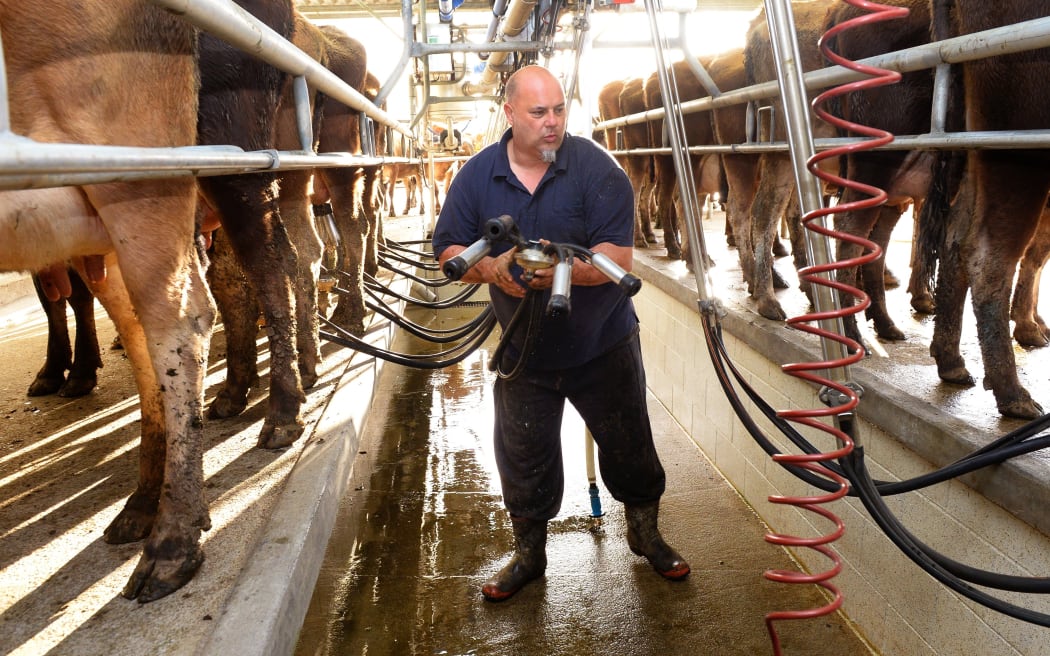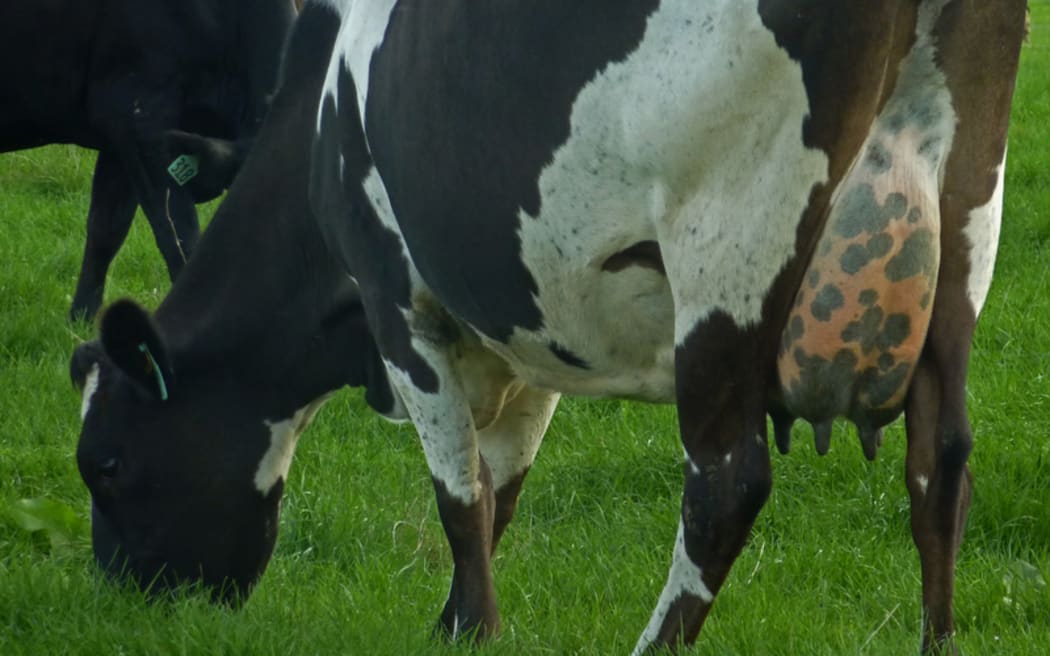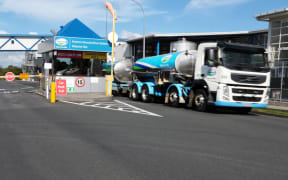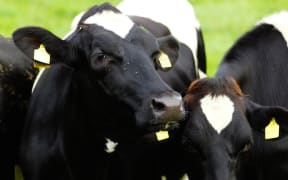The country's biggest company Fonterra is losing farmer shareholders, as rivals, many Chinese-owned, offer better deals.

Low dairy prices could open the door for new sharemilkers. Photo: AFP
Farmers and analysts said the co-operative was looking vulnerable, with its share of the milk supply market shrinking at the same time as it faced another corporate shakeup.
They said low payouts, low dividends, a tumbling share price and a poor performing co-operative were turning many Fonterra farmers off.
Disgruntled Waimate farmer Rod Hayman sold his $1.5 million worth of Fonterra shares and switched supply to South Canterbury's Oceania Dairy, owned by China's largest dairy producer, Yili, when it offered 10 cents more a kilogram for his milk.
"The no shares is obviously a financial attraction, it's the biggest one at the moment, we don't have to own shares in it and we're not indebted to Fonterra to supply them," he said.
But they were not the only reasons to desert the dairy giant.
Mr Hayman was against outside investors in Fonterra, saying the shift away from the pure co-operative to a corporate model was not working.
''You had a milk price last year of $8 plus and now this year we've got a milk price of $4 plus. You can't tell me that they didn't know about the global milk powder glut," he said.
"I think Fonterra have got to look at what their opposition are doing not so much what they're doing, keep an eye on your enemy.
"Its not war but its about filling your goals and I think some of their goals have been lost on the way with our expansion offshore, maybe we should be staying at home and looking after our books," he said.
Fonterra's share of the milk supply market has shrunk from 96 per cent in 2001, the year of deregulation, to about 87 per cent today, as locally-owned and foreign competitors had emerged.
Dairy consultant Peter Fraser said another year of low payouts and worries about rising debt levels had lead some farmers to cash in their Fonterra shares.
"I think its a pretty open secret that most of the independents have waiting lists of farmers wanting to join them.
"Firms like Tatua, that's nothing new but for the newer independents, if I was them I'd be very happy about that situation but its quite a telling commentary on the state of the industry and farmers attitudes towards Fonterra," he said.
Dairy broker John Shaskey said some farmers felt they had lost the connection with Fonterra as it had grown.
"If you're a Fonterra farmer you are one of many. You feel somewhat delinked from the organisation.
"You don't have the sort of sense of familiarity you used to have in the older model pre Fonterra," he said.
He thought Fonterra would remain dominant but its share of the milk pool would shrink further as farm ownership changed.
"More and more you're seeing farmer investment groups being put together, corporate farms and that will have an impact on loyalty because when you're sitting on a board of directors and you've got 25 dairy farms under your control and you can make x millions of dollars more by moving it from one company to another, I think the loyalty issue won't necessarily prevail in the manner that it has done in the past," he said.

Dairy cow north of Matamata. Photo: RNZ / Alexander Robertson
Among Fonterra's foreign rivals, Chinese-owned Yashili's new $210 million plant in Pokeno, south of Auckland, is the biggest single drying plant for infant milk in Asia, processing up to 300,000 litres of milk a day.
Also in Waikato, Beijing's Allied Faxi is turning an old dairy plant into an ice cream factory, while Hong Kong's He Run International's plant is due to open in Otorohanga next year.
The mayor Max Baxter, himself a Fonterra farmer, said it would create jobs, boost the population and attract more investment.
He admitted there was concern that a chunk of the profits would go offshore.
"Where we get the benefit is through the employment opportunities and the people that we have in our town.
"So, yeah there is a concern, there is obviously, there's not talk at all here of buying up farmland its just setting up a business in town of which a percentage of the product will go to China and the rest will go to other markets throughout the world," he said.
Mr Baxter said competition was good but he was loyal to the co-operative, saying the country and farmers needed a strong Fonterra.
In a statement, Fonterra group director of cooperative affairs Miles Hurrell said over the last five years Fonterra milk production had increased 22 percent, supplier numbers for the next season were steady and forecast milk collection continued to grow.
"There are many compelling reasons to supply Fonterra including Farm Source which uses the unity and strength of our co-operative to benefit farmers and grow their farming businesses," he said.





